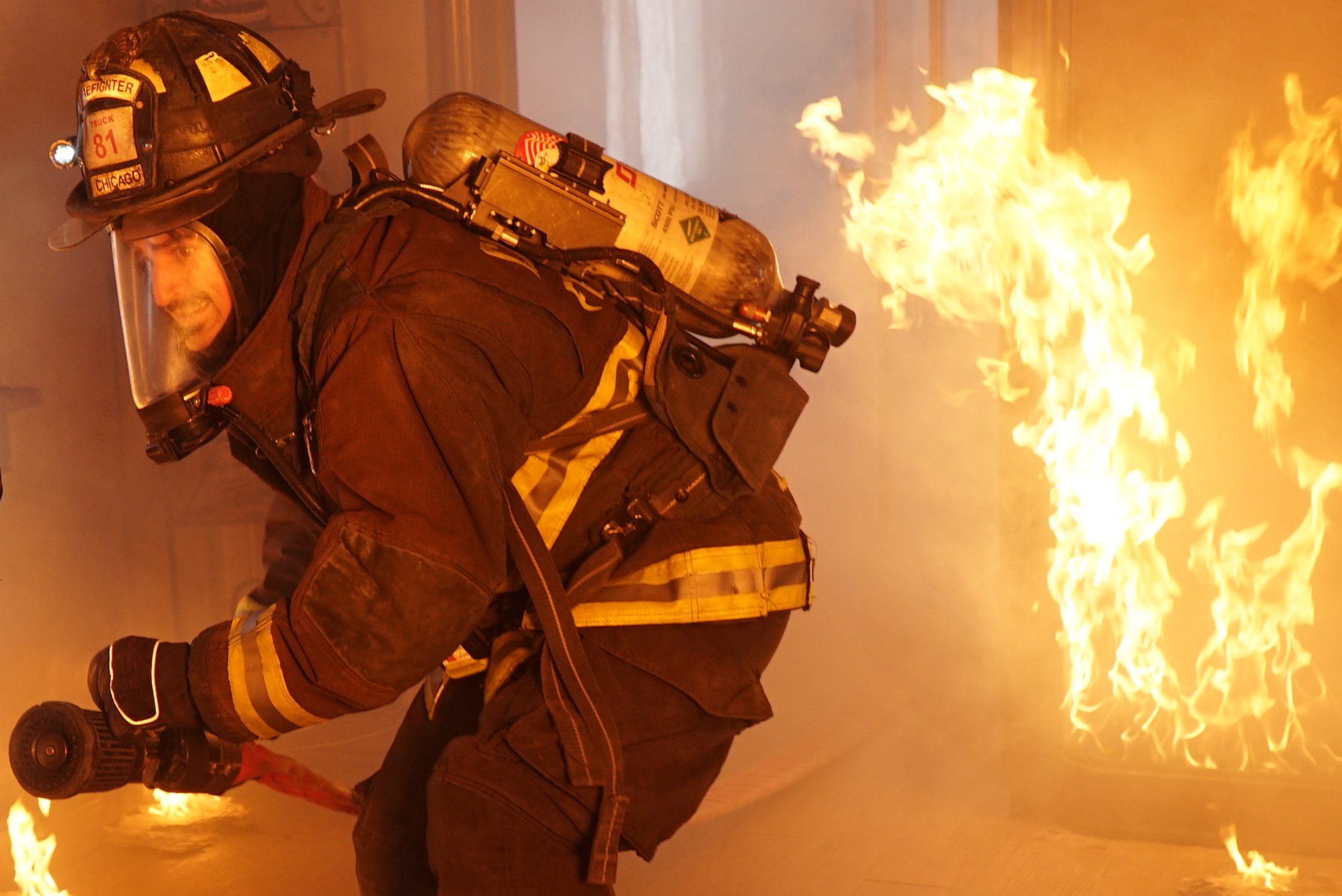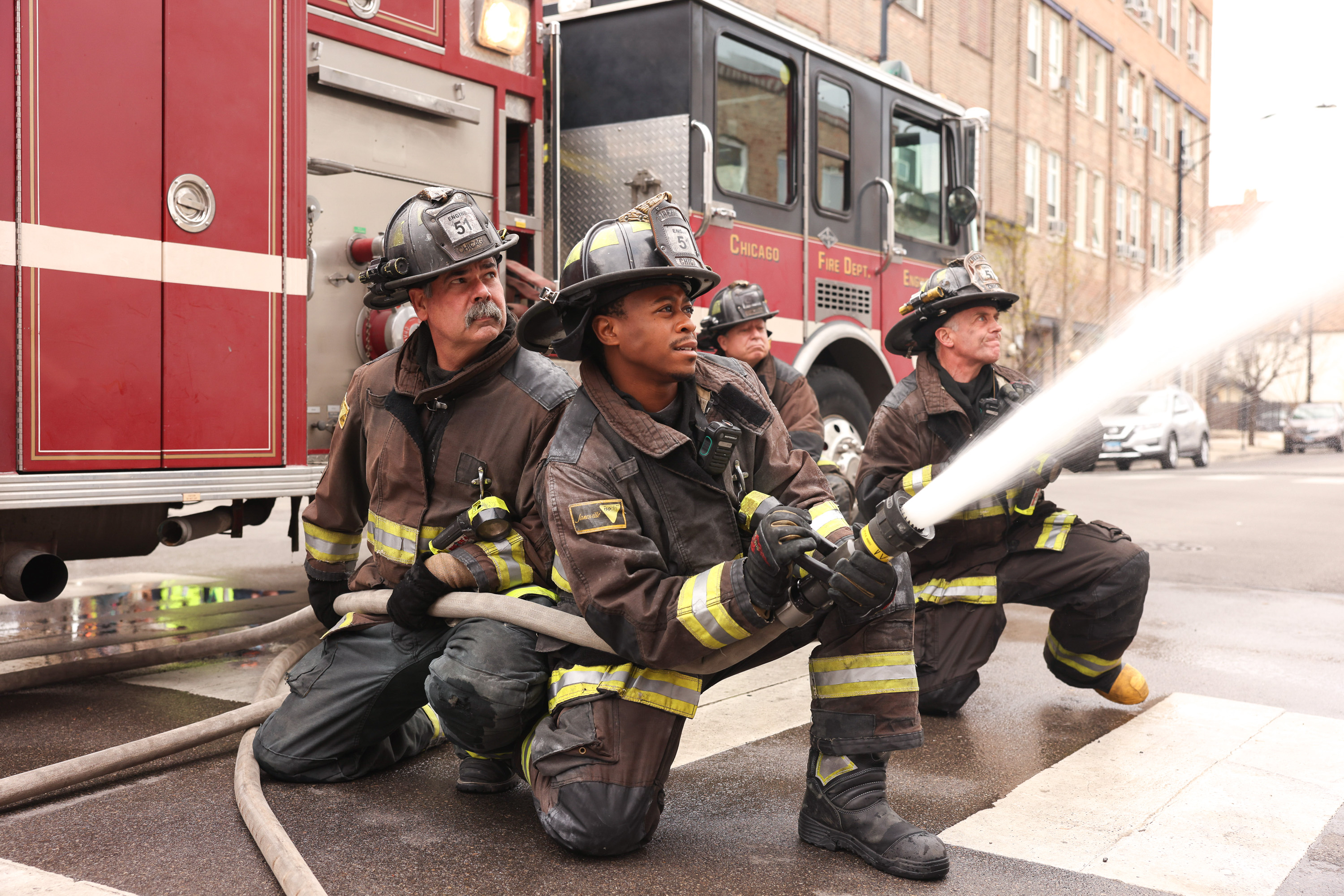‘Chicago Fire’: The Death of Otis in Season 8 Almost Went a Different Way
Chicago Fire fans have grieved the loss of several characters during the show’s run. Brian ‘Otis’ Zvonecek’s season 8 death remains one of the most emotional, though. The loss of a core team member and the fallout carried fans through much of season 8. Otis’ death ended up being the right direction for the show, but the character wasn’t the only one that writers considered killing off. Executive producer Derek Haas once explained why Otis had to die and the other characters who were on the chopping block.
Otis dies after battling a mattress factory fire in ‘Chicago Fire’
In the season 8 opener of Chicago Fire, back in 2019, Otis’ fate after a mattress factory fire is revealed. The seasoned firefighter succumbs to burns sustained while battling the blaze. His final scene with Joe Cruz is considered one of the most memorable moments in the show’s long history. The fallout of his death is especially difficult for fans, too.

After his death, Firehouse 51 creates a memorial to remember their fallen coworker. Haas once revealed that a memorial at a station in Los Angeles was the inspiration behind Otis’ death. He said he created the memorial scene first and worked backward from there.
Derek Haas said the writing team wanted fans to understand the inherent dangers of firefighting
During the show’s first seven seasons, there were character losses. Leslie Shay’s death in season 3 shook fans. Still, Otis’ death was the first time the writers grappled with the true dangers of the job, claims Haas. In an interview with TV Insider, Haas explained that he and his team felt like there had been too many last-minute saves in the first seven seasons.

He said that Chicago Fire writers meant for the death of Otis to show fans just how much danger exists for the men and women who fight fires daily. He said they wanted to remind fans that the job comes with risks, and sometimes people don’t make it. In 2020 alone, 96 firefighters died while on duty. According to the United States Fire Administration, on average, around 85 firefighters die in the line of duty each year.
Daniel Kyri’s character, Ritter, was considered for the season 8 ‘Chicago Fire’ death
While the production team and show creator, Dick Wolf, all agreed that Otis’ death was a necessity, there wasn’t always so much certainty. Haas explained that at the end of season 7, they had not decided Otis’ fate after the fire. They walked away with several ways to deal with his burns. In the end, they decided it would be best to kill off the character, but Otis’ wasn’t always the one who was going to go.

Haas explained to TV Insider that the Chicago Fire team heavily considered killing off Ritter and a few other characters. Ritter, the group agreed, was too young as a character to kill off if they wanted to garner an emotional response from fans. Ritter appeared at Firehouse 51 for the first time the year before. Because Otis was a part of the story from the beginning, Haas theorized, his death would be more meaningful. He was correct. Some fans still haven’t recovered from the emotional moment.


